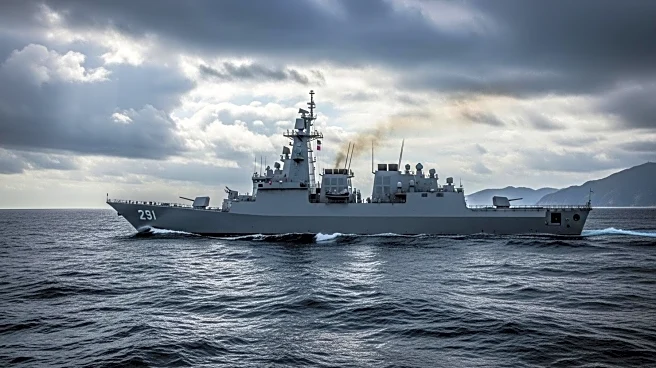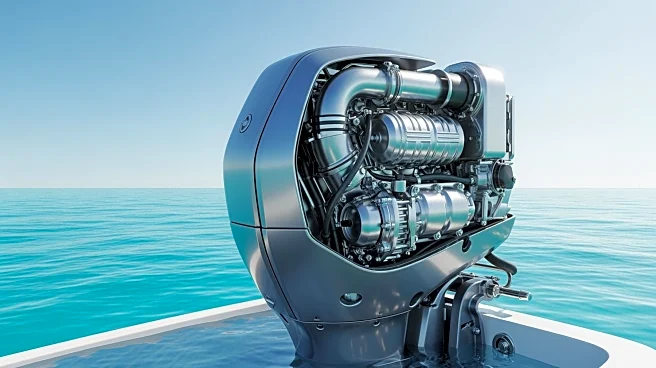What's Happening?
China's military has criticized the transit of Canadian and Australian warships through the Taiwan Strait, labeling the action as provocative. The People's Liberation Army's Eastern Theatre Command reported that the Canadian frigate Ville de Quebec and the Australian guided-missile destroyer Brisbane were involved in what it described as 'trouble-making and provocation.' The Australian Defence Department stated that the transit was routine and conducted in accordance with international law, alongside the Canadian frigate. The Canadian armed forces did not comment on the specific sail plans but noted the Ville de Quebec's deployment as part of Operation Horizon, aimed at promoting peace and stability in the Indo-Pacific region. Taiwan's defense ministry is monitoring the strait closely, dispatching air and naval forces to ensure security. The U.S. Navy and allied countries regularly transit the strait, which they consider an international waterway, a view shared by Taiwan but contested by China.
Why It's Important?
The transit of warships through the Taiwan Strait is a significant geopolitical event, highlighting tensions between China and Western nations over navigation rights in the region. China's criticism underscores its territorial claims over Taiwan and the surrounding waters, which are rejected by Taiwan and not recognized by international law. The presence of Canadian and Australian ships in the strait reflects ongoing efforts by Western nations to assert freedom of navigation and challenge China's territorial assertions. This situation impacts regional security dynamics, potentially escalating military tensions and affecting diplomatic relations between China and countries involved in the transit. The event also emphasizes the strategic importance of the Taiwan Strait as a critical maritime passage for international trade and military operations.
What's Next?
The continued transit of warships by Western nations through the Taiwan Strait is likely to persist, as countries like Australia and Canada maintain their commitment to freedom of navigation. This may lead to further diplomatic exchanges and military posturing from China, which views such actions as provocations. Taiwan will continue to monitor the strait closely, ensuring its security and stability. The international community may see increased dialogue on maritime rights and the legal status of the Taiwan Strait, potentially involving multilateral discussions or negotiations. Stakeholders, including the U.S. and its allies, may reinforce their naval presence in the region to uphold international law and counter China's territorial claims.
Beyond the Headlines
The transit of warships through the Taiwan Strait raises broader questions about international maritime law and the balance of power in the Indo-Pacific region. It highlights the ongoing struggle between China's territorial ambitions and the international community's efforts to maintain open and secure sea lanes. The situation may influence future military strategies and alliances, as countries seek to navigate the complex geopolitical landscape. Additionally, the event underscores the importance of diplomatic engagement and conflict resolution mechanisms to prevent escalation and ensure regional stability.









